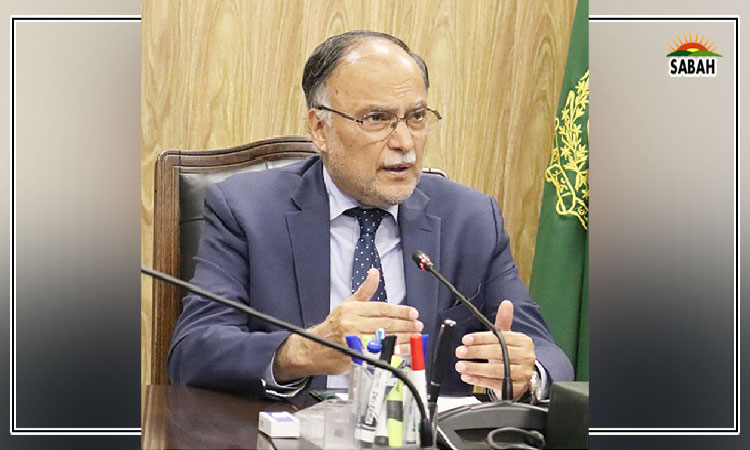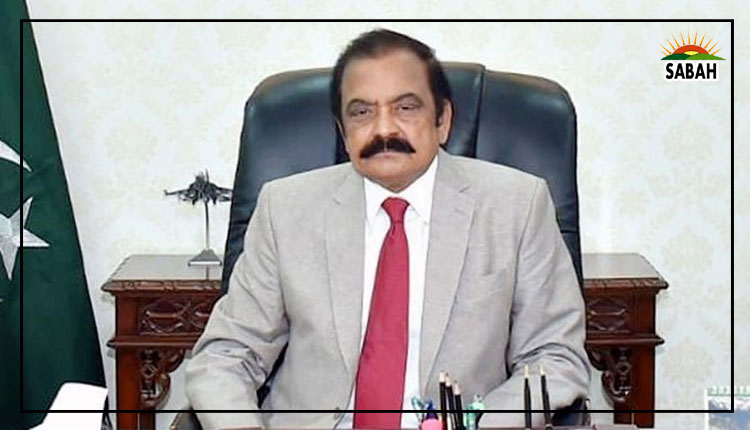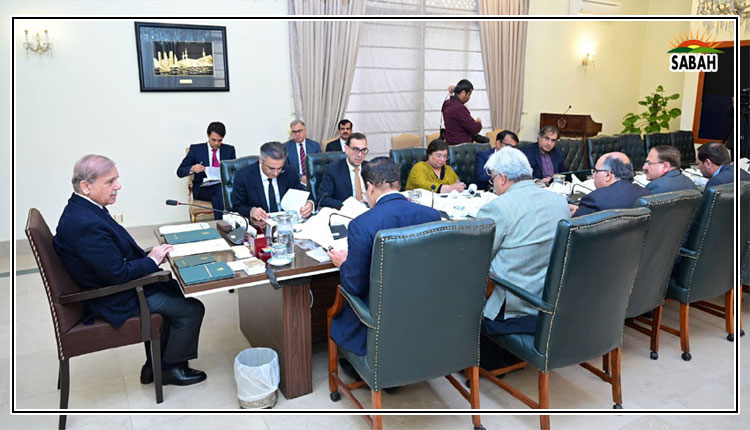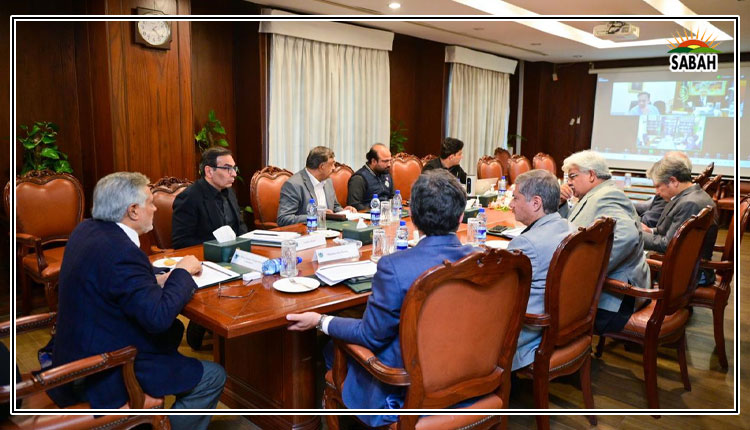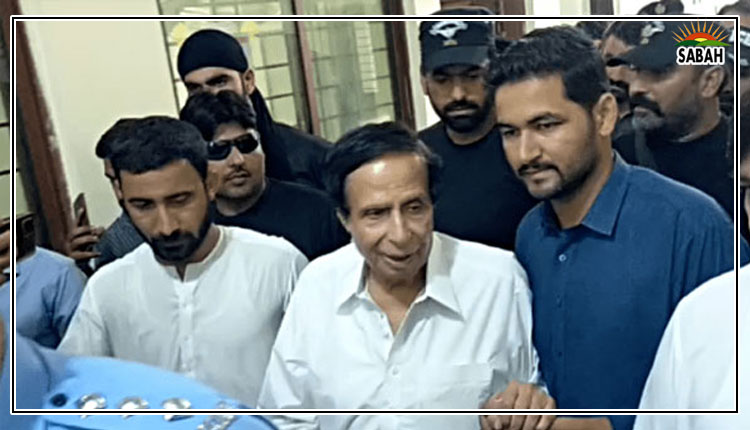Parvez Elahi sent to jail on 14-day judicial remand in a case pertaining to March 18 riots outside the Federal Judicial Complex
ISLAMABAD, Sep 08 (SABAH): An Islamabad anti-terrorism court (ATC) on Friday sent Pakistan Tehreek-e-Insaf (PTI) President and former chief minister Punjab Chaudhry Parvez Elahi to jail on 14-day judicial remand in a case pertaining to the March 18 riots outside the Federal Judicial Complex (FJC).
The March 18 events were marred by clashes between the police and PTI workers amid party chairman Imran Khan’s appearance at the FJC in a hearing for the Toshakhana case.
On September 5, Elahi was arrested in the case hours after the Islamabad High Court (IHC) had suspended his detention under Section 3 of the Maintenance of Public Order (MPO) ordinance and directed his release.
On Wednesday, Elahi was presented before an ATC at the FJC, where police sought his 14-day physical remand and his lawyers urged the court to discharge him from the case. However, the ATC had granted the police two-day physical remand of the PTI president.
During Friday’s hearing, Elahi was presented in court before ATC Judge Abual Hasnat Muhammad Zulqarnain. Lawyers Sardar Abdur Razzaq, Babar Awan and Ali Bukhari appeared as the PTI leaders’ counsel while Prosecutor Tahir Kazim was also present.
The prosecutor urged the court to extend Elahi’s physical remand by another 10 days while his lawyers reiterated their plea to discharge the PTI leader from the case.
Rejecting both pleas, the ATC then sent the former Punjab chief minister to Adiala Jail on 14-day judicial remand and ordered for him to be produced before the court on September 22. It also directed the investigation officer to furnish a report on the matter.
Elahi’s lawyers then filed a bail plea in the court, following which the ATC issued notices to the respondents, seeking their replies by September 11.
The lawyers also submmited a hand-written request to the court, urging it to allow the PTI leader’s family to meet him and for home-cooked food to be provided to him due to medical reasons. Subsequently, Judge Hasnat approved the request.
At the outset of the hearing, the prosecutor urged the court to extend Elahi’s physical remand for another 10 days, at which Judge Hasnat inquired about the previous remand granted.
When the prosecutor informed the court that two-day physical remand was granted, Razzaq contended, “The FIR that pertains to the events of that day (March 18) does not mention Parvez Elahi’s name.”
Noting that the FIR had been registered against “PTI members”, he claimed his client was not a part of the PTI when the FJC clashes took place and that he “joined the PTI in April”.
Razzaq reiterated his claim that Elahi joined the PTI in April, highlighting that the case was registered in March.
The lawyer recalled that a “high court had said that a political case was made against Parvez Elahi” and ordered his release but the Gujranwala police arrested him, following which a judicial magistrate had ordered his release.
Razzaq went on to recall the LHC’s order as well wherein it had barred the police from arresting Elahi in any unknown case. “In all MPO orders, there is not even a difference of a comma, just of the name (of who issued it),” he asserted.
Retelling the events of the day Elahi was re-arrested by the Islamabad police earlier this month, the lawyer alleged that the police had not received any detention orders at that time and the DC issued the order later.
“Parvez Elahi was abducted and detained in the Police Lines. He was arrested from my car within Police Lines premises,” Razzaq said, submitting the LHC and IHC orders to the ATC.
He argued that the physical remand was being sought by the police “on the basis of the word ‘perhaps’”.
Claiming that Imran, PTI Vice Chairman Shah Mahmood Qureshi and others had been granted bail in the same case, he urged the court to discharge Elahi from the case.
After he concluded his arguments, Awan, another counsel, cited various past verdicts as he defended his client.
“This case is from March. What evidence has the prosecution presented for Parvez Elahi being a terrorist?” he asked. “The prosecution does not have a grain’s worth of evidence against Parvez Elahi.”
In his arguments, Bukhari said that Elahi had been in police’s custody for the last 72 hours, asking whether any investigation was conducted by the prosecution during this time.
At this point during the hearing, Prosecutor Kazim began his arguments in favour of being granted physical remand.
He insisted that the cases in Punjab were different from the current case and that the current case “would have to be looked at in its own way”.
Recalling the IHC order, Kazim claimed that the order directed for Elahi’s release “if not wanted in any other case”.
“Parvez Elahi assisted by providing cars, men and financial help, which needs to be investigated,” he alleged.
At this, the court inquired about the investigation conducted during the past two days. Subsequently, the ATC rejected the plea for further physical remand and sent the PTI president to the Adiala Jail on judicial remand.
Following the verdict, Elahi’s lawyers filed a bail plea in the court, on which notices were issued to the respondents for September 11.
The plea also urged the court to allow Elahi’s family to meet him in jail. “Let Parvez Elahi’s family meet him. Parvez Elahi sahib, please come forward,” Judge Hasnat said.
The former Punjab chief minister complied and said, “There is no such jail left in Punjab where I have not been sent. I also have stents in my heart.
“The Punjab chief minister is my relative but is strongly against me,” he added.
The first information report (FIR) against Elahi was registered at the CTD police station on March 18 on the complaint of Ramna police Station House Officer Malik Rasheed.
The case pertained to the clashes on that day between Islamabad Police and PTI workers outside the Judicial Complex.
The case was lodged under Sections 148 (rioting armed with deadly weapon), 149 (unlawful assembly), 186 (obstructing public servant in discharge of public functions), 353 (assault or criminal force to deter public servant from discharge of his duty), 380 (theft in dwelling house, etc), 395 (punishment for dacoity), 427 (mischief causing damage amounting to Rs50), 435 (mischief by fire or explosive substance with intent to cause damage), 440 (mischief committed after preparation made for causing death or hurt) and 506 (punishment for criminal intimidation) of the Pakistan Penal Code and Section 7 (punishment for acts of terrorism) of the Anti-Terrorism Act.
March 18’s events were marred by clashes between the police and PTI workers amid party chairman Imran Khan’s appearance at the Judicial Complex in a hearing for the Toshakhana case.
The Islamabad police had alleged that party workers had shelled the Judicial Complex and set fire to a police post. In turn, the PTI had also accused the police of shelling Imran’s vehicle.


